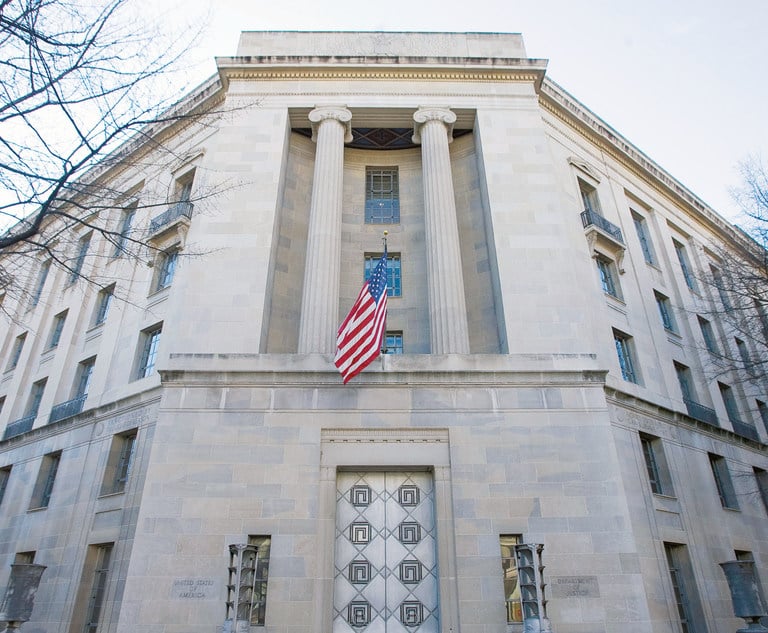Technology: Don’t let the cloud services Grinch steal your Christmas
On Christmas Eve 2012, Netflixa leading provider of Internet streamed video contentreceived the electronic equivalent of coal in its online stocking.
January 25, 2013 at 06:24 AM
4 minute read
The original version of this story was published on Law.com
On Christmas Eve 2012, Netflix—a leading provider of Internet streamed video content—received the electronic equivalent of coal in its online stocking.
Beginning on the afternoon of Dec. 24 and continuing well into Christmas Day, many Netflix customers experienced difficulties in accessing portions of Netflix's services. Instead of settling by the fire to watch a movie, these unlucky customers were forced into spending more time with their family and friends.
As it happens, Netflix had outsourced certain of its system operations to a cloud computing service maintained by Amazon. The Netflix Christmas Eve outage was attributable to a failure in Amazon's Northern Virginia data center. Apparently, an Amazon developer had mistakenly deleted data during maintenance operations which resulted in the outage. Ironically, Amazon's competing Prime Instant Video service experienced no holiday downtime.
Given the growing movement by corporate IT departments to rely on outsourced cloud services, the recent Netflix outage offers lessons in how to ensure that such cloud customers are taking adequate steps to protect themselves in their cloud service contracts. Below are some examples of the approaches that cloud customers may consider using.
Adequate Service Levels
In the Netflix Christmas Eve outage services were down for hours before they resumed. Cloud customers should insist that their cloud vendor's contract includes robust service levels with financial incentives for ensuring that there are few service interruptions, the duration of any interruptions are short and that service is quickly restored.
Use of Multiple Sites
As noted earlier, published reports relating to the Netflix outage indicated that the cause of the problem occurred at a single data center. Corporate cloud customers should always undertake adequate due diligence to ensure that potential vendors have the capability to perform the cloud services from more than one site or data center. The use of multiple sites will lessen the likelihood of a prolonged outage attributable to a single site failure.
Business Continuity Provisions & Avoidance of Force Majeure Clauses
Related to the above point, cloud customers should demand that their service providers have strong business continuity and disaster recovery plans to ensure that in the event of any service interruption (regardless of the cause), the vendor has back-up sites at which any crucial services can continue to be performed until the vendor is able to restore its primary sites. Customers should also be alert to the vendor's use of force majeure provisions in their contracts (i.e., provisions that excuse performance in the event of disasters, wars, strikes, etc.). Such clauses should be resisted if possible—but at a minimum, the vendor must first be required to fully comply with approved business continuity and disaster recovery plans before it can excuse performance based on a force majeure event.
Separation of Development, Testing & Production Environments
Published reports indicated that the Netflix outage resulted from a developer introducing changes into the production environment without fully realizing the impact of those changes. Such event illustrates that it may make sense to include provisions in the cloud service contract limiting developer access to production systems and requiring adequate testing of any system changes in a test environment before a change is introduced into a production environment.
Be Prepared for Problems
Clearly, both Amazon and Netflix are companies that are technologically sophisticated. Indeed it is quite likely that Netflix had addressed most (if not all) of these issues in its cloud service contract with Amazon. Even the best systems and back-up plans fail at times. Cloud customers must anticipate that problems will likely occur, but they should have in place reasonable contractual provisions and back-up plans to address those likely failures.
Most importantly, corporate cloud customers should also anticipate how their own customers may be impacted by a cloud vendor's failure. If appropriate the cloud customer's contracts with its own customers should attempt to address the impact of any such possible cloud vendor failures. The cloud customer should, if appropriate, promptly communicate the nature and resolution of the outage as well.
This content has been archived. It is available through our partners, LexisNexis® and Bloomberg Law.
To view this content, please continue to their sites.
Not a Lexis Subscriber?
Subscribe Now
Not a Bloomberg Law Subscriber?
Subscribe Now
NOT FOR REPRINT
© 2025 ALM Global, LLC, All Rights Reserved. Request academic re-use from www.copyright.com. All other uses, submit a request to [email protected]. For more information visit Asset & Logo Licensing.
You Might Like
View All

Internal GC Hires Rebounded in '24, but Companies Still Drawn to Outside Candidates
4 minute read
NBA Players Association Finds Its New GC in Warriors Front Office

Trending Stories
- 1There's a New Chief Judge in Town: Meet the Top Miami Jurist
- 2RIP DOJ FCPA Corporate Prosecutions
- 3Federal Trade Commission’s Updates to the Health Breach Notification Rule Now In Effect
- 4I’m A Lawyer, What Can I Sell?
- 5Internal GC Hires Rebounded in '24, but Companies Still Drawn to Outside Candidates
Who Got The Work
J. Brugh Lower of Gibbons has entered an appearance for industrial equipment supplier Devco Corporation in a pending trademark infringement lawsuit. The suit, accusing the defendant of selling knock-off Graco products, was filed Dec. 18 in New Jersey District Court by Rivkin Radler on behalf of Graco Inc. and Graco Minnesota. The case, assigned to U.S. District Judge Zahid N. Quraishi, is 3:24-cv-11294, Graco Inc. et al v. Devco Corporation.
Who Got The Work
Rebecca Maller-Stein and Kent A. Yalowitz of Arnold & Porter Kaye Scholer have entered their appearances for Hanaco Venture Capital and its executives, Lior Prosor and David Frankel, in a pending securities lawsuit. The action, filed on Dec. 24 in New York Southern District Court by Zell, Aron & Co. on behalf of Goldeneye Advisors, accuses the defendants of negligently and fraudulently managing the plaintiff's $1 million investment. The case, assigned to U.S. District Judge Vernon S. Broderick, is 1:24-cv-09918, Goldeneye Advisors, LLC v. Hanaco Venture Capital, Ltd. et al.
Who Got The Work
Attorneys from A&O Shearman has stepped in as defense counsel for Toronto-Dominion Bank and other defendants in a pending securities class action. The suit, filed Dec. 11 in New York Southern District Court by Bleichmar Fonti & Auld, accuses the defendants of concealing the bank's 'pervasive' deficiencies in regards to its compliance with the Bank Secrecy Act and the quality of its anti-money laundering controls. The case, assigned to U.S. District Judge Arun Subramanian, is 1:24-cv-09445, Gonzalez v. The Toronto-Dominion Bank et al.
Who Got The Work
Crown Castle International, a Pennsylvania company providing shared communications infrastructure, has turned to Luke D. Wolf of Gordon Rees Scully Mansukhani to fend off a pending breach-of-contract lawsuit. The court action, filed Nov. 25 in Michigan Eastern District Court by Hooper Hathaway PC on behalf of The Town Residences LLC, accuses Crown Castle of failing to transfer approximately $30,000 in utility payments from T-Mobile in breach of a roof-top lease and assignment agreement. The case, assigned to U.S. District Judge Susan K. Declercq, is 2:24-cv-13131, The Town Residences LLC v. T-Mobile US, Inc. et al.
Who Got The Work
Wilfred P. Coronato and Daniel M. Schwartz of McCarter & English have stepped in as defense counsel to Electrolux Home Products Inc. in a pending product liability lawsuit. The court action, filed Nov. 26 in New York Eastern District Court by Poulos Lopiccolo PC and Nagel Rice LLP on behalf of David Stern, alleges that the defendant's refrigerators’ drawers and shelving repeatedly break and fall apart within months after purchase. The case, assigned to U.S. District Judge Joan M. Azrack, is 2:24-cv-08204, Stern v. Electrolux Home Products, Inc.
Featured Firms
Law Offices of Gary Martin Hays & Associates, P.C.
(470) 294-1674
Law Offices of Mark E. Salomone
(857) 444-6468
Smith & Hassler
(713) 739-1250






